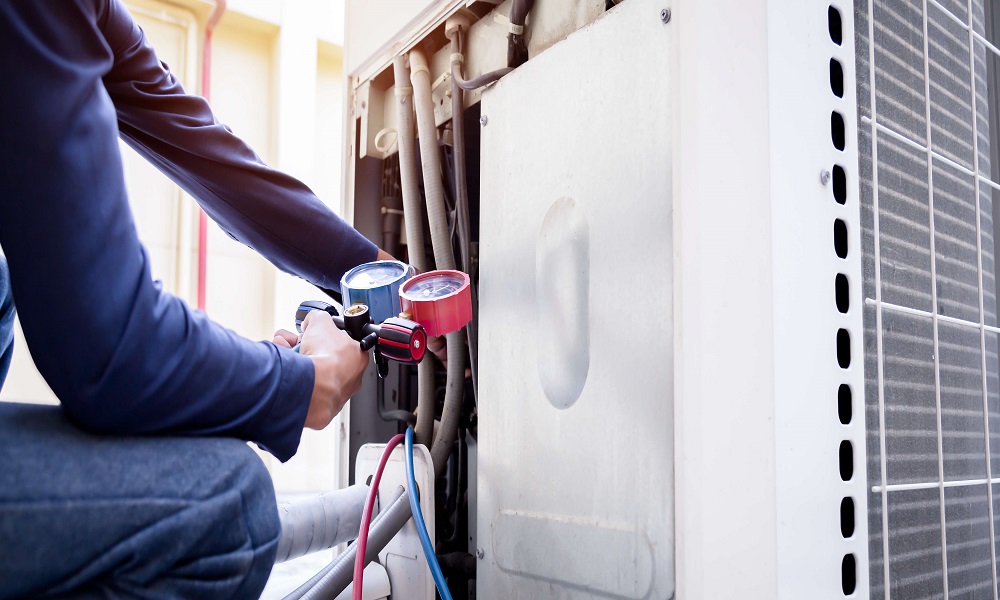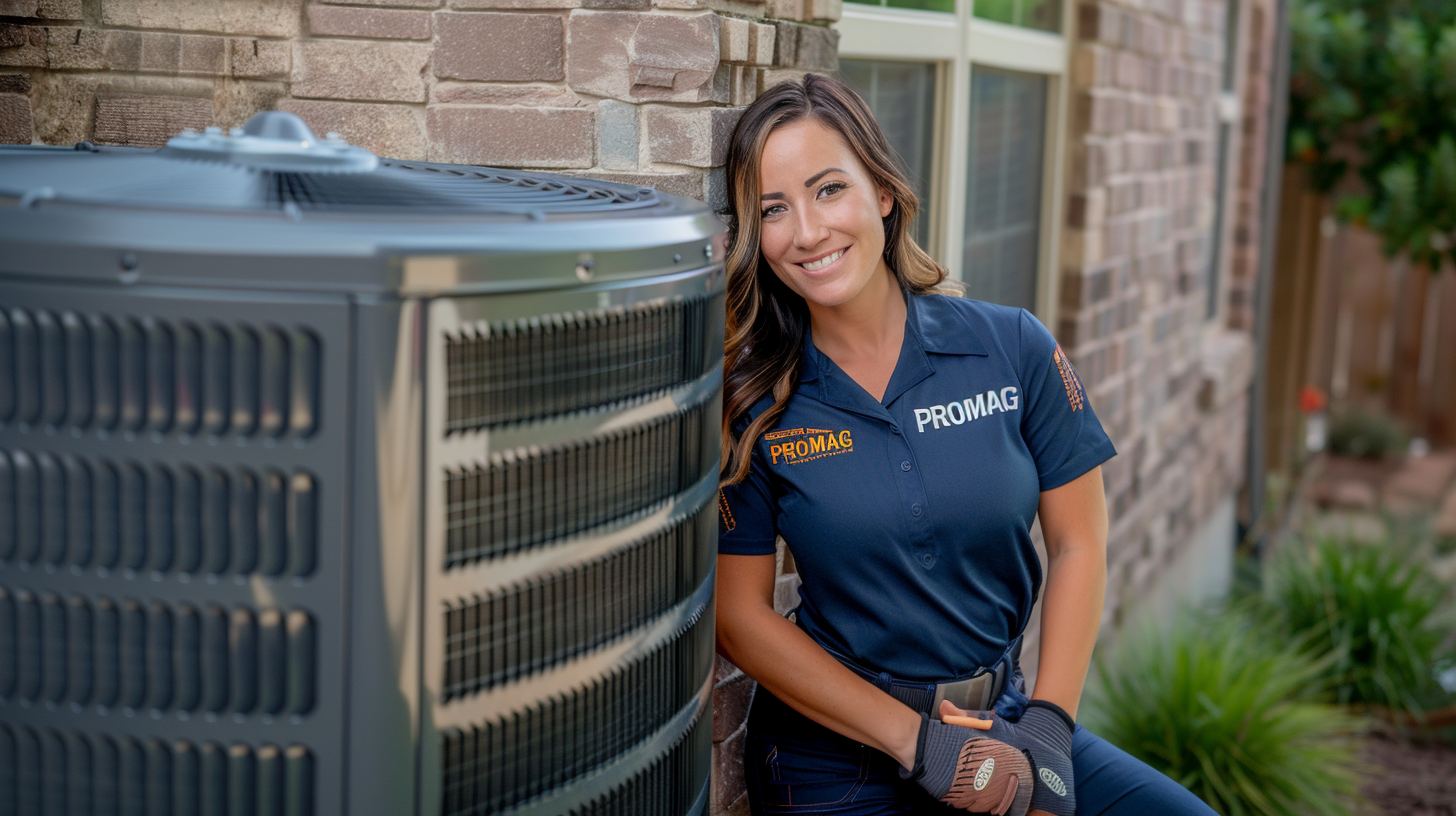Professional Services from DMAKS HVAC for Any HVAC Needs.
Professional Services from DMAKS HVAC for Any HVAC Needs.
Blog Article
Energy-Efficient Cooling And Heating Equipments to Save Money On Energy Costs
As power expenses continue to climb, the value of energy-efficient A/c systems becomes significantly obvious. These systems not just assure considerable savings on utility costs however also contribute to a more sustainable future by lessening power consumption.
Benefits of Energy-Efficient Heating And Cooling Solutions
Energy-efficient heating and cooling systems offer various benefits that extend past mere cost savings. One considerable benefit is the minimized environmental influence. By eating less energy, these systems add to reduce greenhouse gas emissions, aiding to fight environment change and promote sustainability. This aligns with increasing social needs for environmentally friendly techniques in domestic and business setups.
In addition, energy-efficient heating and cooling systems usually give enhanced comfort degrees. Numerous of these systems feature advanced modern technology that enables much better temperature control and boosted air top quality (DMAKS HVAC). This causes a much healthier interior environment, which is specifically important for people with allergic reactions or respiratory system problems
In addition, investing in energy-efficient a/c systems can improve residential property value. As even more customers prioritize energy efficiency, homes and structures outfitted with these systems may bring in greater bids in the property market.
Sorts Of Energy-Efficient HVAC Options
How can home owners and services choose one of the most ideal energy-efficient heating and cooling choices for their requirements? The market uses a variety of energy-efficient heating and cooling systems, each developed to improve comfort while lessening power consumption.
One alternative is the variable cooling agent flow (VRF) system, which effectively regulates the temperature in multiple zones within a structure. This system adjusts its refrigerant circulation to match the preferred temperature level, leading to substantial energy financial savings.
One more popular option is geothermal heatpump, which use the planet's steady temperature level to warm and amazing rooms. By transferring warm to and from the ground, these systems show remarkable performance, especially in moderate climates.
Additionally, ductless mini-split systems supply an energy-efficient alternative for homes lacking ductwork. These systems enable for zone-specific heating & cooling, minimizing power waste in empty areas.
Finally, high-efficiency heaters and a/c unit, with advanced SEER and AFUE rankings, provide dependable environment control while eating much less power than traditional versions. By reviewing these options, house owners and companies can pick a cooling and heating system tailored to their particular requirements and energy performance objectives.
Key Functions to Consider

Following, check out the kind of compressor used in the system. browse around these guys DMAKS HVAC. Variable-speed compressors can adjust their output to match the heating or cooling need, leading to enhanced convenience and energy financial savings contrasted to single-speed models. Furthermore, search for systems geared up with wise thermostats that offer programmable setups and remote gain access to, permitting much better control over power consumption
Another critical function is the system's air filtration capacity. High-efficiency filters can boost indoor air top quality and lower power intake why not try these out by guaranteeing the system operates successfully. Moreover, take into consideration the type of refrigerant made use of; modern systems commonly utilize environmentally friendly refrigerants that have a lower ecological impact.
Lastly, ensure that the system works with zoning innovation, which permits personalized temperature control in different areas of your home, enhancing convenience while reducing energy use.
Tips for Choosing the Right System


Following, consider energy efficiency scores, specifically the Seasonal Power Effectiveness Proportion (SEER) for cooling down systems and the Annual Fuel Application Effectiveness (AFUE) for heater. Higher rankings indicate higher performance, which can cause considerable savings on utility costs in time.
Additionally, review the type of heating and cooling system that finest suits your way of living and budget. Choices include central air conditioning, ductless mini-splits, and heatpump, each with its very own collection of advantages and downsides.
Do not neglect the significance of proper installment and sizing; an incorrectly sized system can lead to ineffectiveness and raised wear. Consult with a professional HVAC service provider to obtain expert suggestions tailored to your home's unique demands. This thorough technique will guarantee that you pick an energy-efficient cooling and heating system that fulfills your demands and spending plan successfully.
Upkeep for Optimum Effectiveness
As soon as the appropriate HVAC system is in area, continuous maintenance becomes essential to guaranteeing optimum performance and durability. A well-maintained system runs better, leading to lower power usage and reduced utility expenses. Regular examinations and tune-ups must be set up at the very least twice a year-- once prior to the air conditioning period and when prior to the home heating period.

Property owners should likewise be alert about checking their cooling and heating system's efficiency. Unusual noises, fluctuating temperature levels, or raised energy expenses can indicate underlying issues that need prompt interest. By dealing with these issues immediately, homeowners can stop pricey repairs and extend the life expectancy of their systems.
Purchasing an upkeep strategy with a certified professional not only improves efficiency but additionally provides assurance, understanding that the system is operating at its finest. DMAKS HVAC. Normal maintenance is consequently crucial for maintaining energy effectiveness and minimizing general operational expenses
Final Thought
In conclusion, energy-efficient cooling and heating systems offer a viable service for decreasing energy costs while boosting convenience and air top quality. By including sophisticated modern technologies and alternatives such as geothermal warmth pumps and ductless mini-splits, building owners can attain significant power cost savings and add to ecological sustainability. Cautious consideration of system features and ongoing upkeep further ensures ideal performance, making energy-efficient systems a sensible financial investment for both economic and environmental benefits.
Report this page